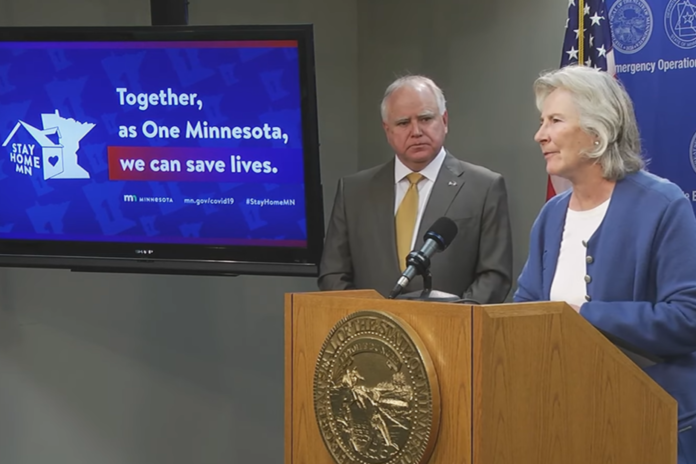
A Minnesota coronavirus expert lawyered up after the state effectively refused to honor his data request.
Minnesota’s Data Practices Act, which functions like the federal government’s FOIA system, allows people to request data from the government. However, some researchers say that when they make coronavirus-related data requests, the state simply doesn’t respond. One such expert is Kevin Roche, who is now working with the Upper Midwest Law Center (UMLC) to make the Minnesota Department of Health (MDH) follow the law.
Roche, who runs the widely regarded website Healthy Skeptic, asked MDH for data related to face mask efficacy, breakthrough infections, and a few more items. He made this request in September. The department responded in October saying that it was processing a large volume of requests that were submitted ahead of his.
“MDH has failed to even provide a timeframe for inspection, much less the data requested, within nearly 60 days,” James Dickey of the UMLC wrote in a letter to MDH Monday. Minnesota law requires that data requests be honored in a “reasonable time.”
He then reminded the department that the state has previously determined that making a data requestor wait this long is unacceptable.
“Prior Commissioner of Administration opinions related to more voluminous data requests demonstrate (1) that 13 working days for production of data is reasonable, and (2) failure to provide data within 5 weeks, or 35 days, even for larger requests, is unreasonable,” the letter reads.
In fact, the state has a history of honoring even more complex requests in as little as 13 days, Dickey said, referencing an instance in which somebody asked for “all account ledgers and checkbook ledgers [1988-1994] along with supporting invoices and cancelled checks [and] … all Bloomington Fire Department operating procedures and other … documents used to support the maintenance of these account(s).”
“This [request] involves years of data, and far more than Mr. Roche has requested,” Dickey pointed out. “There, the Commissioner stated that ‘thirteen working days,
in this case, is not an unreasonable time frame in which to make the data available.'”
“The state of Minnesota has been less than forthcoming with [breakthrough] data in a variety of ways,” Roche observed during an Alpha News interview earlier this month. He is now prepared to sue, dismayed by the lack of transparency he faces compared to people who make other kinds of requests.
“Mr. Roche has been incredibly patient to date, but he is prepared to begin litigation to gain the MDH’s compliance if the MDH does not swiftly provide access to the requested data,” Dickey’s letter says.
Legal action may begin in less than two weeks, as Roche and the law center demanded the data by Nov. 29. If the state honors the data request on Nov. 29, it will have taken 74 days.
